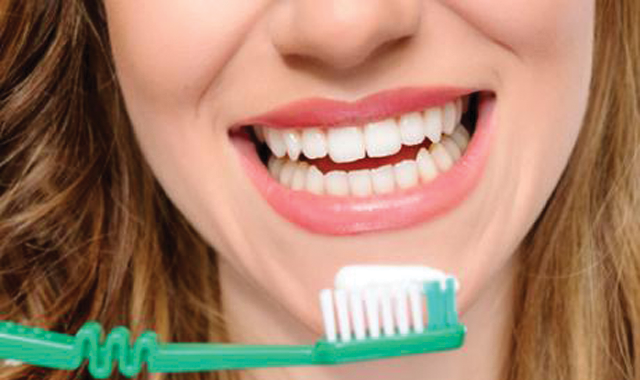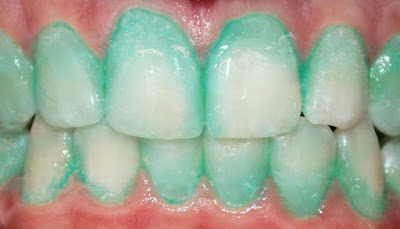Researchers have for many years been investigating the correlations between gum disease and a spread of conditions including stroke, hypertension, and disorder. a replacement study is now reporting the results of a randomized pilot trial that found a plaque-identifying toothpaste can potentially lower levels of systemic inflammation by improving a person’s brushing efficacy.
A large volume of epidemiological studies has long identified a correlation between poor oral hygiene and disorder, stroke and hypertension. Some researchers suggest this link isn't causal but instead indicates the presence of certain lifestyle factors that will cause general disease. So periodontitis instead could also be a signpost of poor health and hygiene behaviors that subsequently increase a person’s risk for developing a heart condition.
One hypothetical mechanism by which gum disease may directly contribute to disorder is by increasing systemic inflammation. an efficient biomarker of systemic inflammation during a physical body is elevated levels of C-reactive protein (CRP), and high CRP levels are cited as an independent risk factor for the disorder. Studies have also clearly shown periodontitis to contribute to increases in CRP levels.
So, all this goes to a minimum of present a hypothetical mechanism through which gum disease is often linked to general health via elevations in systemic inflammation.
This new study, published within the American Journal of drugs, explored what effect a specific plaque-identifying toothpaste had on reducing CRP levels, compared to a daily toothpaste. Plaque HD was the novel toothpaste tested within the study for its unique ability to spotlight plaque while an individual is cleaning their teeth. The maker of the toothpaste claims PlaqueHD is twice as effective at removing plaque as conventional toothpaste, making it a useful product to gauge the link between simpler teeth cleaning and CRP levels.
The trial recruited around 100 subjects, randomized into two groups, one using the PlaqueHD toothpaste for 30 days, and therefore the other acting as placebo using conventional toothpaste for 30 days. CRP levels were evaluated at the start and end of the test period.
The results interestingly found statistically significant decreases in CRP levels within the PlaqueHD group compared to placebo, only in subjects displaying elevated CRP levels at baseline. this means simpler teeth cleaning may reduce CRP levels, but only in those already showing high levels of systemic inflammation.
All this study essentially tells us is that better teeth cleaning can possibly lower levels of a biomarker linked to systemic inflammation. Charles Hennekens, from Florida Atlantic University and senior author on the new study, notes any longer claims suggesting this particular toothpaste could reduce the risk of attack or stroke would wish more specific research.
"Whether this plaque-identifying toothpaste decreases heart attacks or strokes requires a large-scale randomized trial of sufficient size and duration,” says Hennekens. “These results provide a stronger rationale to conduct such trials. If positive, the results of those trials would have significant potential clinical and public health implications."
Despite this study’s specialize in a really particular brand of plaque-identifying toothpaste, the researchers do clearly state the research is independent and not funded by the toothpaste company.
“Neither the funding source nor the distributor of the toothpaste had any role within the design, conduct, analysis, interpretation, preparation of the manuscript, or within the decision where to submit,” the study is obvious to notice.
Planning is underway to conduct an attempt specifically focused on investigating whether the PlaqueHD toothpaste can directly reduce the progression of atherosclerosis within the coronary and carotid arteries. This research will definitely hope to feature the growing connections between oral hygiene and a heart condition.










Aucun commentaire:
Enregistrer un commentaire